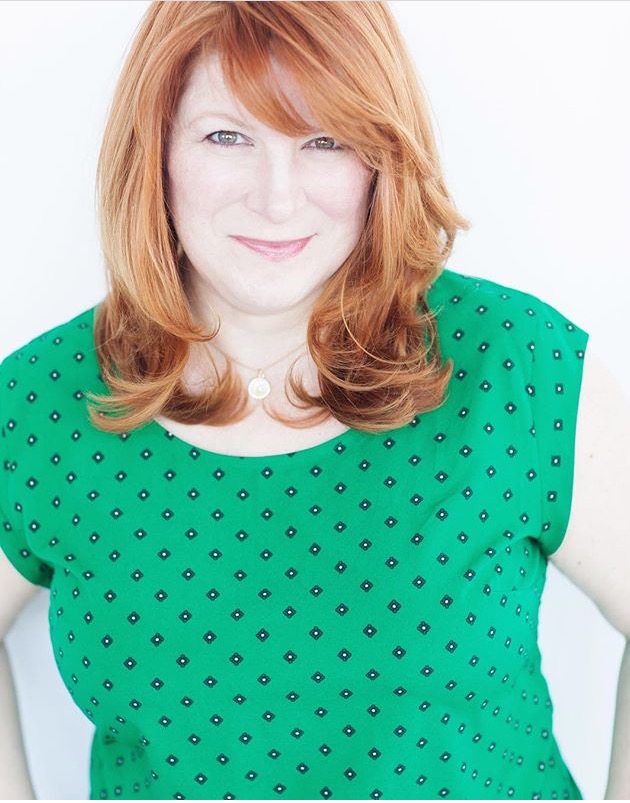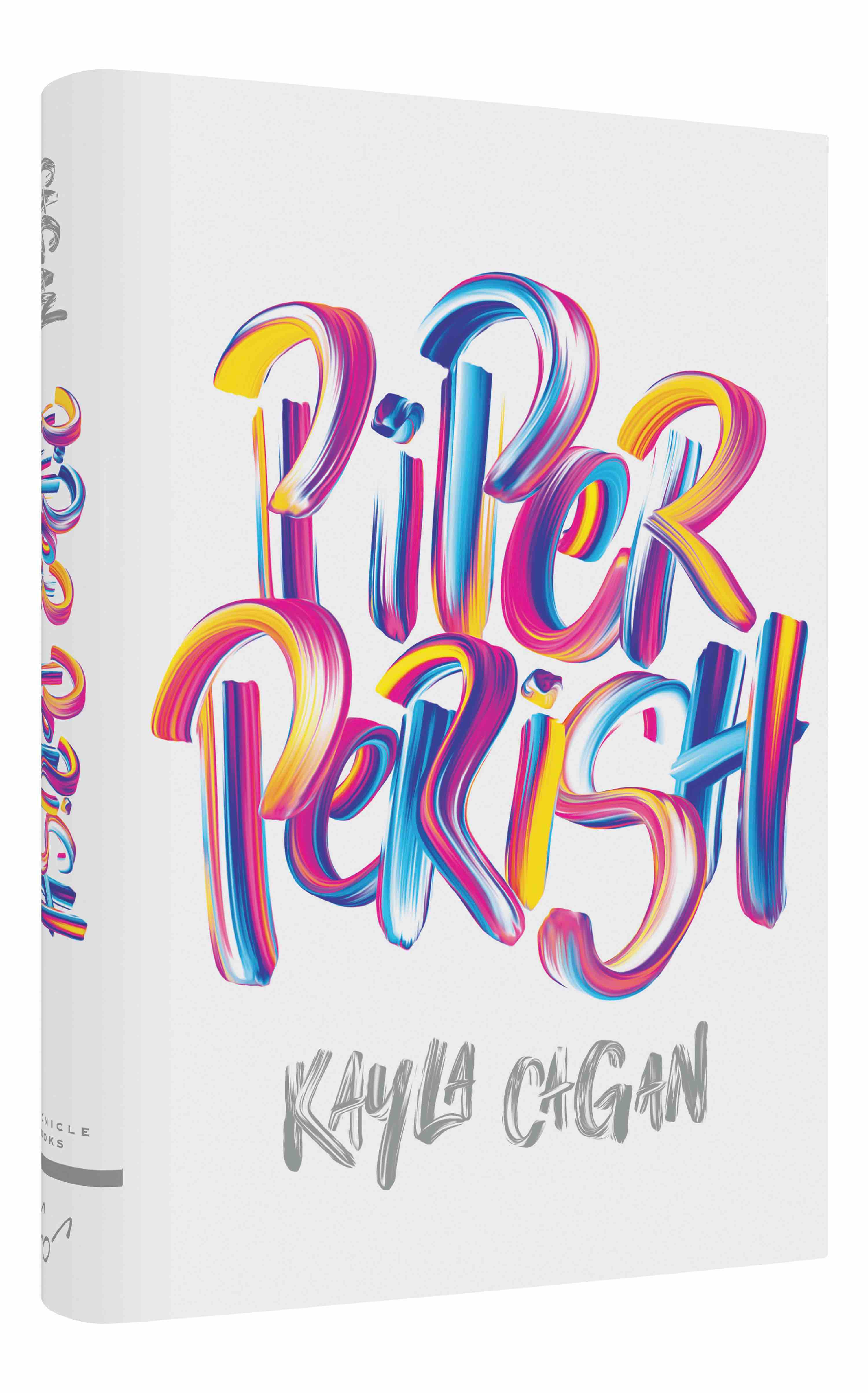
Kayla Cagan is a writer and dramaturge who has run social media and content for events like the LA Times Festival of Books and The Taste. She has several published plays, two award-winning comic books, and various essays. The following is a complete transcript of Kayla’s interview with Cracking the Cover for her debut novel, Piper Perish.
Why do you write?
I’ve always written since I was a very young girl. I know that’s not the most exciting answer, but it’s my way of expressing myself, the way I access my creativity and the form that’s most natural to me. Whether it’s playwriting, journaling, writing short stories, or now novels, I’ve just always gravitated towards words and specifically, dialogue. At times I’ve created in other ways – directing plays, dancing (for fun not professionally), and the occasional dipping into photography, but I always come back to what I love the most: words, words, and more words.
Why specifically for young people?
I didn’t set out to write for young people but if you look at my body of work, including my published plays, the characters I’m likely to write happen to fall between 10 and 30 years old. Maybe it’s because I’ve lived through those ages and feel like I can speak to some of the drama (and hilarity) that happens as we grow up, maybe it’s because I’m just not done exploring how we make it out and grow up. I believe I’m still writing about ordinary people going through extraordinary circumstances, they’re just a bit younger than typical literary novels generally accept as protagonists.
Where did the idea for Piper Perish come from?
I’ve been journaling and/or keeping a diary since I was in 4th grade. I never thought I could write a novel as a journal until one day, I woke up and said I want to write the year in the life of a senior in high school and her name is Piper and that’s all I know. I had no idea what to expect, or Piper’s voice, or why she appeared in my head. I did not know if I would ever try to publish it or have anyone outside of my writing critique group read it, but I do know it was a natural fit to write it as a journal and I loved it and didn’t want to stop. I worked on it every day, Monday through Friday, for a year.
Are you an artist?
I’m a theater artist. I have directed plays and directing is extremely visual. Making pictures by using the set design and moving the characters around the stage to tell the playwright’s story is called blocking in the theater, and blocking can be very artistic. When I direct, I think I’m an artist. But I’m not a trained artist in terms of traditional fine arts.
How did you translate the visual (art) into written form?
Well, I wrote the ideas I had in my head for what I thought Piper would sketch or scribble in her journal and the amazing creative team at Chronicle, along with Maria Ines Gul, a Rookie Magazine illustrator, brought the images to life and the page.
 Along the lines of the two questions above, did you have a physical piece of art to work from when writing about Piper’s (and other artists) work?
Along the lines of the two questions above, did you have a physical piece of art to work from when writing about Piper’s (and other artists) work?
Not one specific piece, but many many influences – everything from magazine layouts to visits to my local museums and galleries in LA – The Broad, LACMA, Regen Projects. Because Piper’s main influence is Andy Warhol, I was referencing his diary entries and art work often.
Later in Piper Perish, a project causes some controversy as to how artistic it really is. How do you define art?
A piece or pieces specifically created with intention to cause intellectual and emotional reaction and stimulation.
To call Piper’s sister, Marli, intense is sort of an understatement. Where did she come from? How did you create a balance between her and Piper?
I didn’t want Piper’s monster to battle to be her parents nor art itself. Art had to be her savior and hero. Sibling stories have always fascinated me. Most of my plays are about siblings and why they are either very close and reliable or very distant and almost unrelated. Though strides have been made in mental health awareness, there are a lot of families who for whatever reason are not able to get the help they need and I wanted to address that. Not everyone can be or is “fixed”. Not everyone gets the help they need. I don’t think Piper is a perfect protagonist in any way, she’s a teenager and an artist and messy and romantic and smart and creative and silly and ridiculous. I didn’t want Piper to be the “good” kid and Marli the “bad”, but I wanted to examine how Marli’s mental illness controlled the family, and how everyone identified or fit into other roles because they worked around her constantly. Piper only looks good in comparison to Marli. It doesn’t mean Piper is perfect. It just highlights how much work she has to do to stay alive and survive around her.
Would you consider Piper’s “party life” typical of American teenagers?
Nope! I consider Piper’s party life typical of her life and her own experience, but not all teens. I would never say my characters speak or represent all American (or non-American) characters.
Why do you think Piper Perish will/does resonate with readers?
I hope for readers, young and old, who have ever felt trapped creatively and/or physically, it gives them hope that they can change their circumstances, even if it takes longer than they thought or gives them a different route to take than they originally imagined. I hope the art and Piper’s passion for what she does encourages people to chase their dreams or whatever moves them, and helps them make a positive difference in their own lives.
What are you working on now?
I’m working on a 2nd book scheduled with Chronicle Books for 2018. I’ll keep you guys posted as soon as I can tell you more! HINT: IT’S GONNA BE FUN!
Is there a book from your own youth that still resonates with you today?
I still love Judy Blume’s Blubber. I think it’s highly overlooked. I also love The Good Earth by Pearl Buck. Also for readers who like memoirs and are reading YA, I recommend Ernest Hemingway’s A Moveable Feast about living in Paris in the 1920s, when he was in his 20s. I’ve reread it every year since I was 20 and every time I find some new passage in it that shakes my brain and wakes me up.
